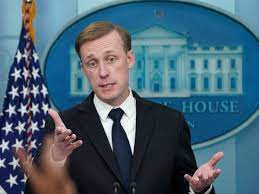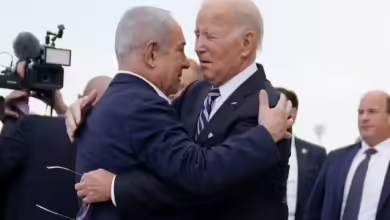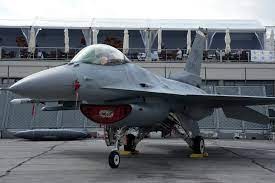White House on Canadian Allegations Against India: We Are in Regular Contact With Canada, and There Is No Wedge Between Us
In response to claims that India was involved in the murder of a Sikh terrorist on Canadian territory, the White House said on Thursday that it is in frequent contact with Canada and disputed that there is any rift between the two nations.
On Monday, Justin Trudeau, the prime minister of Canada, said that Hardeep Singh Nijjar’s death in the Canadian city of Surrey in June may have had Indian involvement. Nijjar was the leader of the Khalistan Tiger Force (KTF), a group that has been recognized as a terrorist organization.
Speaking in front of the House of Commons, Trudeau said that his administration was looking into “credible allegations of a potential link between agents of the government of India” in relation to the murder of Nijjar. Following the remarks, Canada removed a senior Indian ambassador and revealed him to be a member of the Indian intelligence services. Since then, India has vehemently denied Trudeau’s claims and removed a Canadian diplomat from New Delhi who is believed to be a representative of Canadian intelligence.
The White House has said that there is no rift between the two nations and that the United States is “deeply concerned” by the accusations, which claim that Canada sought help from friends like the United States in the subject but was ignored.
“As soon as we learned about the allegations from the Canadian Prime Minister in public, we went public with our own statements expressing our deep concern about them and our support for a law enforcement investigation to determine what exactly happened and to make sure that those responsible are held accountable.According to US National Security Advisor Jake Sullivan, we are closely engaging with them, we support the efforts they are doing in this inquiry, and we have also spoken with the Indian government.
With his accusations, Trudeau furthered strained ties between India and Canada that had already been there for some time due to Canada’s role as a safe haven for terrorists from Khalistan and other separatist groups. The Indian government responded vehemently to the Canadian attack by suspending visa services for Canadian citizens and further requesting that the Canadian government reduce the size of its mission in India.
The Ministry of External Affairs referred to Canada as a “safe haven” for terrorists in a statement on Thursday. When Trudeau was ignored by India and Prime Minister Narendra Modi and had a brief meeting with him at the G20 Summit, the tensions between India and Canada were already on show. India said that Modi “conveyed our strong concerns about the continuing anti-Indian activities of extremist elements in Canada” in the chilling readout of the discussion.
They are threatening the Indian community in Canada and their places of worship, encouraging secessionism, provoking violence against Indian diplomats, and destroying diplomatic facilities. Canada should be concerned about the connections between these forces and human trafficking, drug cartels, and organized crime. In order to combat such dangers, cooperation between the two nations is crucial, said the report.
Sullivan said he would not comment on the private diplomatic discussions in response to a query at a news conference regarding Biden’s stance on Trudeau’s accusations and if he planned to speak with Modi about the matter.
Sullivan “firmly rejected” suggestions that Canada had requested assistance from friends like the United States but had received a negative response.
“And with that, I’ll end my remarks for today. I just want to mention that I’ve noticed in the news some attempts to try to put a wedge between the US and Canada on this topic. And I vehemently disagree with the notion that the United States and Canada are at odds. We are really concerned about the claims, and we want to see this inquiry continue and the offenders made to answer for their actions, said Sullivan.
Sullivan said he wouldn’t discuss intelligence or law enforcement issues amid rumors that a “Five Eyes” ally had also given Canada information about Nijjar’s murder.
Sullivan said that India is “not an exception” and that “regardless of the country,” the United States takes such matters seriously.
“It is something that worries us. We consider it to be important. We will continue to work on it, and we will do so no matter the nation. You do not get a particular exception for behavior like this. No matter the nation, we will stand up and protect our fundamental values. And we’ll work together with partners like Canada as they conduct their diplomatic and law enforcement operations,” added Sullivan.
Relations between India and Canada have been strained for a long time due to inactivity on the Khalistani elements in Canada that are involved in anti-Indian activities. The Khalistan movement wants to create Khalistan, a separate state for Sikhs, inside India. The movement led a deadly insurgency in India for many years. While the insurgency decreased in intensity in India in the 1990s, it is still quite prevalent in several areas overseas, including Canada and the UK. The Khalistani elements in Canada have attacked the Indian population there, vandalized Hindu temples, and threatened Indian diplomats and missions there. Since years, Trudeau and his associates have been charged of encouraging such Khalistani groups.







